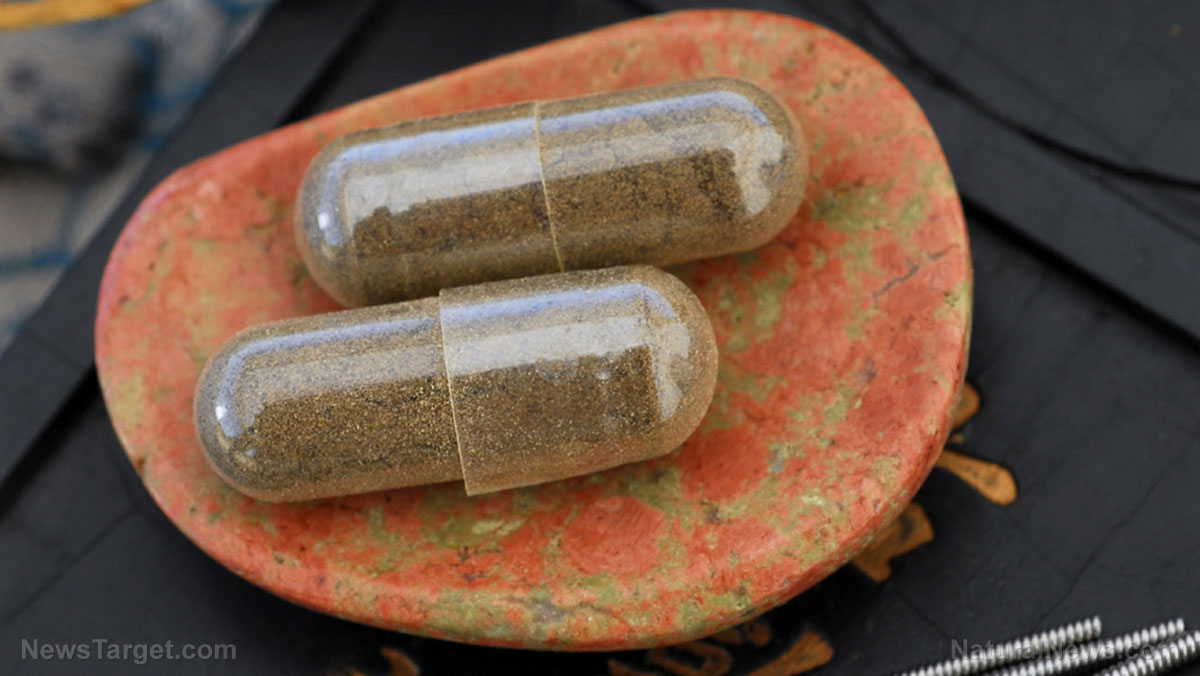Safflower is used in Asian medicine to treat various ailments
09/10/2019 / By Janine Acero

Safflower (Carthamus tinctorius) is a multifunctional crop that is used extensively in folk medicine in China, Japan, Korea, and other Asian countries. The plant produces yellow to deep red flowers, which are largely used for flavoring and coloring purposes. Over the years, researchers have isolated and identified more than 100 compounds from C. tinctorius. In a recent article, researchers from the University of Macau and the Hong Kong Baptist University compiled a comprehensive and up-to-date review of the phytochemistry and pharmacology of C. tinctorius. Their review appeared in The American Journal of Chinese Medicine.
In their paper, the Chinese researchers reported that the flavonoids and alkaloids in safflower, especially the quinochalcone c-glycoside hydroxysafflor yellow A, N-(p-Coumaroyl) serotonin, and N-feruloylserotonin, are responsible for most of the pharmacological activities of C. tinctorius.
In traditional medicine, the flowers and seeds of safflower are used to treat various ailments, such as dysmenorrhea, amenorrhea, postpartum abdominal pain, and joint pain, as well as blood stasis and osteoporosis.
Safflower is also recommended as a treatment for rheumatism, paralysis, vitiligo, psoriasis, mouth ulcers, and numb limbs, among others.
The Chinese researchers believe that their review may provide future research opportunities to further explore the therapeutic potential of C. tinctorius.
Safflower benefits
Safflower oil is a popular cooking oil, and it may be a more healthful option than olive oil when cooking at high temperatures, thanks to its high smoke point and neutral flavor.

|
Discover how to prevent and reverse heart disease (and other cardio related events) with this free ebook: Written by popular Natural News writer Vicki Batt, this book includes everything you need to know about preventing heart disease, reversing hypertension, and nurturing your cardiac health without medication. Learn More. |
The oil extracted from safflower seeds is said to offer health benefits, such as reducing blood sugar, cholesterol, and skin inflammation. Here are five benefits offered by safflower oil. (h/t to MedicalNewsToday.com)
- Source of fatty acids — Fatty acids are among the many nutrients that keep your body functioning. Safflower oil is rich in healthy, unsaturated fatty acids, including monounsaturated and polyunsaturated fats. These healthy fats are essential for hormone regulation and memory. They also help your body absorb fat-soluble vitamins A, D, E, and K. (Related: Diets high in saturated fat contribute to anxiety and depression, new research finds.)
- Improves blood sugar levels — Chronic inflammation is one of the risk factors for diseases like diabetes. A 2011 study suggested that consuming 8 g of safflower oil daily may reduce inflammation and improve blood sugar levels in people with Type 2 diabetes.
- Promotes heart health — One of the risk factors for heart attack and stroke is blood clotting. The unsaturated fats in safflower oil are said to thin the blood and make platelets less sticky, which may help prevent blood clots. Safflower oil may also help relax blood vessels and reduce blood pressure.
- Supports skin health — Safflower oil is a common ingredient of cosmetics and skin care products because of its ability to soothe dry skin. It contains vitamin E, which may be responsible for some of its skin benefits. To soothe your skin, apply some safflower oil topically to a dry or inflamed area. This can give your skin a soft and smooth appearance. Note that you should always perform a patch test before using safflower oil or any topical oil. Rub a drop of the oil onto a small area of your arm and wait for 24 hours. If there is no adverse reaction, it is safe to use.
- Safe for cooking in high heat — Cooking at high temperatures is known to create free radicals, which is bad news for your cells. High-oleic safflower oil is safe to cook with at high temperatures, unlike other oils such as corn oil, olive oil, sesame oil, and canola oil. Safflower oil also has a milder flavor than other oils, which makes it great for deep frying, pan frying, or baking.
Safflower oils are generally well-tolerated in clinical trials, but there have been reports of allergic reactions to the flowers. Safflower oil should not be used by pregnant women.
You may be storing other medicinal plants in your kitchen right now — visit Herbs.news to learn more.
Sources include:
Tagged Under: alkaloids, alternative medicine, blood sugar, Carthamus tinctorius, clean food, diabetes, disease treatments, flavonoids, folk medicine, food cures, food is medicine, functional food, healthy fats, heart disease, heart health, herbal medicine, Herbs, medicinal plants, natural cures, natural medicine, pharmacology, phytochemistry, plant cures, plant medicine, remedies, research, safflower, safflower oil, science, skin care, skin health, TCM, traditional Chinese medicine



















